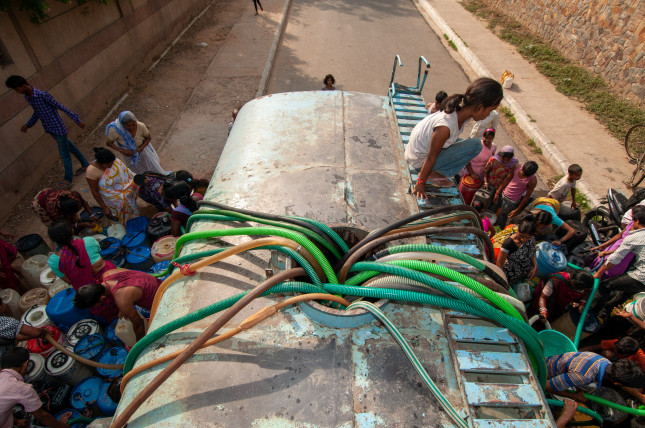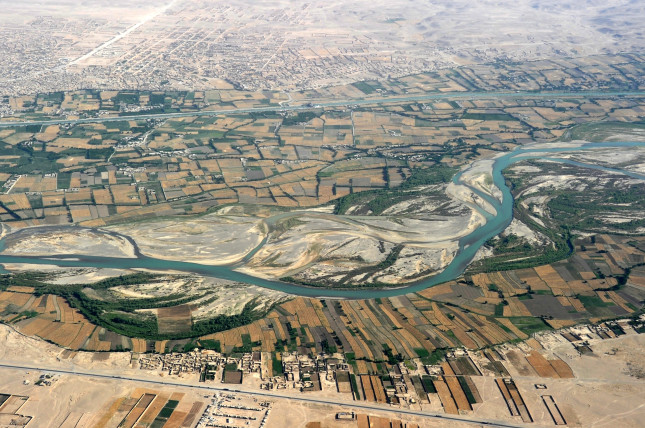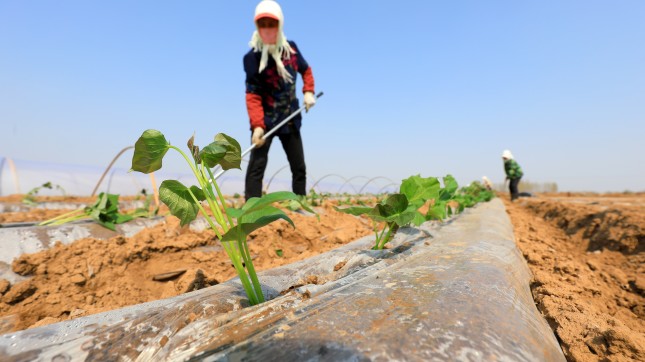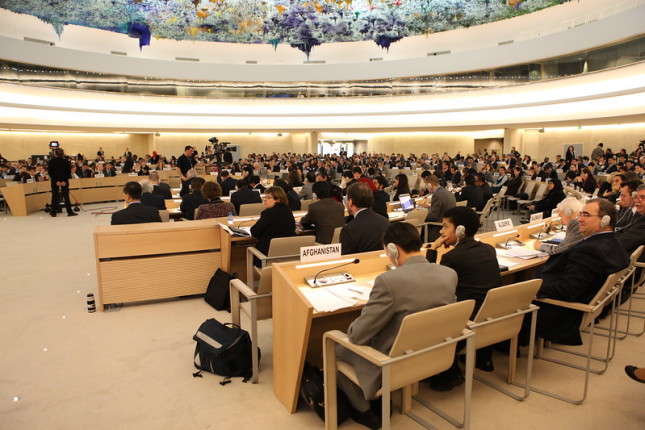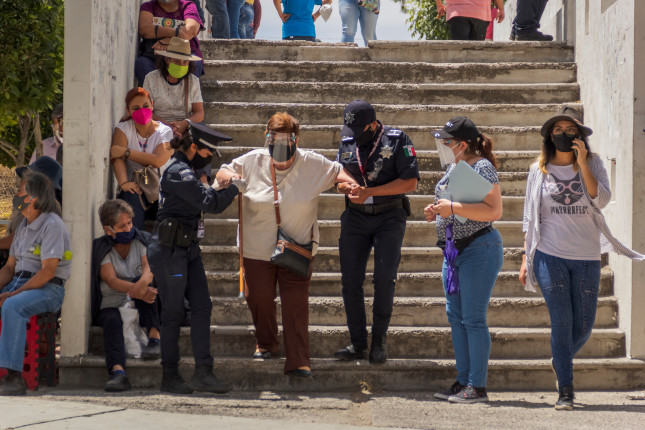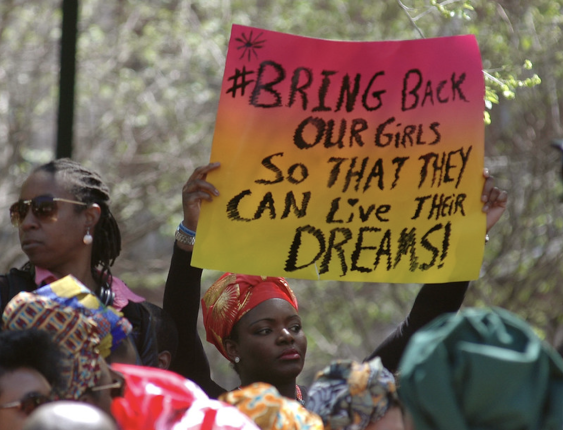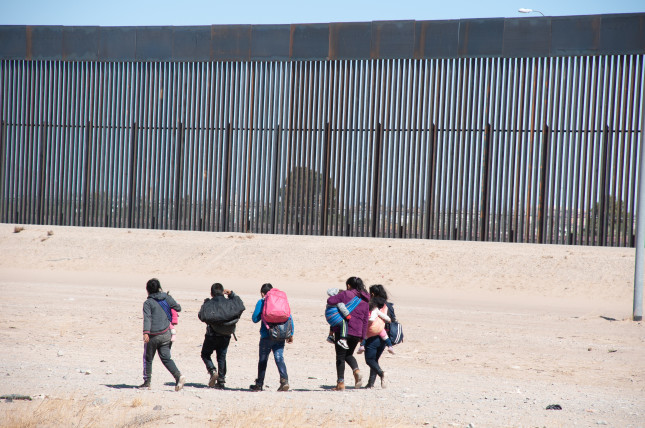-
Why Climate Change Will Exacerbate Inequalities and Grievances in Iraq
›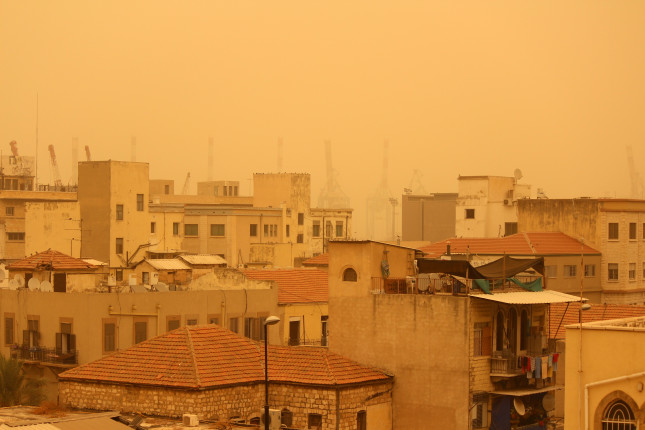
The UN Environment Programme has ranked Iraq as the fifth most vulnerable country to climate change. In recent years, it has increasingly witnessed extreme heatwaves with temperatures reaching above 50°C. Iraq’s mean annual temperature also is predicted to increase by two degrees Celsius by 2050.
-
Preventing Water Conflict Through Dialogue
›
When considering the potential effects of “backdraft” on climate change responses, the question of the world’s water future may be the most salient of all—especially as we examine water supplies and freshwater ecosystem health.
-
A Loss of Ecological Security: The Demise of the Sistan Basin
›
Water is one of the most critical factors for regional security and stability because it is multidimensional. It is an essential resource in ecosystem services & environmental security, yet its importance creates significant possibilities for insecurity—including corruption, environmental crimes, and other illegal activities.
-
Microplastics in Soil – Small Size Big Impact on U.S. and Chinese Agriculture
›Collecting plastic fragments was a game he played while helping his parents farm when growing up in rural Shandong Province, says Dr. Zhao Kaiguang, who is now an associate professor of Environment and Natural Resources at The Ohio State University: “I wanted to collect the most, but did not realize the serious negative implications of leaving plastic in the soil.”
-
Pay More Attention to the United Nations Universal Periodic Review
›
“To attack the most vulnerable—babies, children, pregnant women, and those already suffering from illness and disease, and health workers risking their own lives to save lives—is an act of unconscionable cruelty,” says a Joint Statement from UNICEF, UNFPA, and WHO in response to the ongoing war in Ukraine. To monitor human rights abuses such as this and improve human rights conditions around the world, the United Nations (UN) General Assembly established the Universal Periodic Review (UPR) in 2006. The UPR produces purposeful engagement by all 193 UN member states participating in the periodic reviews. Despite the UPR’s potential to advance human rights—and by extension improve human security—this novel human rights mechanism receives little attention among scholars and policymakers. This lack of interest in the UPR needs to change. More research could shed light on its role in improving human rights outcomes in conflict-free countries as well as in countries experiencing conflict like in Ukraine, Syria, and Ethiopia.
-
Gender Inequality in Mexico’s Fractured Public Health System
›Dot-Mom // From the Wilson Center // Guest Contributor // April 20, 2022 // By Samantha Kane Jiménez
In recent years, Mexican women have experienced a significant downgrade in the quality and accessibility of public healthcare – and not due to the COVID-19 pandemic – said Irene Tello, Executive Director of Mexican impunity watchdog Impunidad Cero, at a recent event hosted by the Wilson Center’s Mexico Institute. The expert panel agreed that the greatest barriers for Mexican women seeking medical attention lie in the current government’s nearsighted health policies and mismanagement of the public health sector.
-
#BringBackOurGirls: Ecofeminism, Climate, and Conflict
›
On the night of April 14, 2014, a group of militants attacked the Government Girls Secondary School in Chibok, Nigeria. They kidnapped 276 female students, ranging from ages 15 to 19 years. An armed group called Boko Haram claimed responsibility for the kidnapping.
-
Harnessing the Power of ‘Other’: Cities Where Human Mobility is not a Threat
›
“This is not the refugee wave we have been used to, people we were not sure about their identity, people with unclear pasts, who could have been even terrorists. In other words, there is not a single European country now which is afraid of the current wave of refugees.”
Showing posts from category Guest Contributor.


